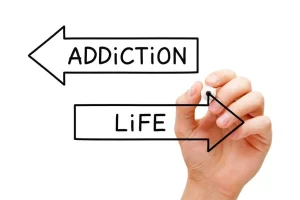
Internet literacy was an implicit eligibility criterion for participation in this study, as individuals without such literacy were unable to take part. Those willing to participate in the follow-up measurements could voluntarily provide their contact details to be included. A reminder was sent twice to those who had not yet completed the questionnaire.
Recovery After Rehab: Moderation or Abstinence?
For those grappling with the challenges of moderation after recovery, exploring options such as outpatient rehab could provide the flexibility and support needed for successful long-term recovery. Furthermore, https://ecosoberhouse.com/ when alcohol begins to take priority over friends and family, work responsibilities, or personal health, it may be time to consider a treatment plan. Understanding your relationship with alcohol is easier said than done, but there are some signs to look out for if you or a loved one are dealing with alcohol abuse. Knowing the warning signs can be critical in determining when to seek treatment.

What Is Drinking in Moderation?

Consumers have returned to beverage alcohol in substantial numbers, including younger LDA+ consumers, however single-category occasions and temporary abstinence are becoming common methods for regulating consumption. For more information about substance abuse and the recovery process, please contact us below or find us on social media. Sobriety Centers of New Hampshire provides residential inpatient addiction treatment for those that need to have a comprehensive addiction treatment program in NH. Understanding the differences in severity among individuals helps create recovery plans that are best suited for each person’s specific situation. For those seeking addiction treatment for themselves or a loved one, all phone calls are confidential and are available for 24/7 help. All calls will be answered by Still Behavioral Health Group, a paid advertiser.
Quit or Cut Back on Alcohol With Reframe!
- A representative subset of 39,809 individuals from the GfK KnowledgePanel were sent the screening question via email, to which 25,229 responded (63.4%).
- With the support of an expert Care Team, many people begin their journey by gradually reducing their weekly alcohol consumption.The idea of moderation and mindful drinking is also a great way for people who are asking themselves “should I stop drinking?
- In addition, TACs could aim to attract a broader range of drinkers, as they currently mostly attract heavy drinkers.
- Many individuals with an alcohol use disorder that wish to change their drinking, however, have a goal of moderation – sometimes referred to as “harm reduction” – rather than complete abstinence.
- Alcohol had taken its toll—her job, friends, family, and health had all suffered—and she wanted it out of her life.
However, if you truly feel you might alcohol abstinence vs moderation have alcohol dependency, take this test, then give us a call. Our four award-winning treatment centers in New Jersey are CARF-accredited facilities, an organization promoting best practices in behavioral health and evidence-based addiction recovery. Through our Seabrook Model, our board-certified professionals provide individualized treatment to help you move forward in life with confidence and strength.
- Medication makes it easier to put the brakes on after a drink or two, and sticking to moderation is challenging without it.
- Be ever vigilant, but ever hopeful and know that you can control your outcome; the choice is yours.
- When the root cause of our drinking isn’t addressed, avoiding alcohol can backfire into binge drinking.
- Single-category occasionsSingle-category occasions, where drinkers limit themselves to one type of beverage during an event, are on the rise across markets.
If you have health problems related to alcohol, it may be unsafe to drink at all, period. In this case, abstinence is the best way forward for your health and safety. By quitting drinking completely, your body can begin to repair the damage caused by alcohol. It involves the use of medications like naltrexone which help reduce alcohol cravings.
WHY IS THIS STUDY IMPORTANT
From a broader public health perspective, increasing access to effective SUD interventions and recovery support services is likely to enhance their overall impact (Glasgow et al., 2003). The TAC evaluation study of ‘Dry January’ 19 reported a significant increase in drink-refusal self-efficacy scores in the intervention group compared to the control group. It is noticeable that the scores of self-efficacy towards refraining from alcohol in our study are high at baseline, while in general participants drank quite a lot (a high self-efficacy does not necessarily lead to moderate alcohol consumption). A seven-point scale could possibly have resulted in a wider spread of the self-efficacy scores. TMC was first developed and funded in 2017 by “de druglijn”, a government subsidized service for all substance use questions, and the national Foundation against Cancer.
- Along with his colleagues, in the presentation, Vasavada will discuss the scientifically sound pros and cons of both abstinence and drinking in moderation for individuals with AUD.
- Participants’ data was linked across the three surveys using their unique email address, which was requested at the end of each time point when completing the questionnaire.
- These influences may include family dynamics, workplace culture, friendships, strained relationships, and lifestyle elements.
- On the other hand, TMC participants also showed a significant short and medium term decrease in perceived benefits of drinking less, subjective norm of drinking less and supportive social influence toward drinking less.
- For many consumers in the study, limiting the occasion to a single category appears to reduce the amount of drinks consumed.
- Moderation or abstinence can be a viable tool for adapting ones’ relationship with alcohol when safely achieved.
Some argue that any amount of alcohol can trigger relapse, Drug rehabilitation while others believe that with the right strategies and support, moderate drinking is achievable for certain individuals. Studies have shown that in some cultures there are a small percentage of people who can return to moderate drinking. Attempts at moderation may not be worth the effort or the risk when considering the consequences.
Risk drinking, drinking levels and binge drinking (secondary outcomes and moderator)

The website has since been updated and the first version has not been archived. “Harm reduction” strategies, or moderation techniques, set more flexible goals in line with patient motivation. These goals differ from person to person and range from total abstinence to reduced alcohol consumption. It is important to note that moderation techniques work best with those concerned with their drinking habits but who are not diagnosed with an alcohol addiction.

Some methodological limitations (besides the lack of a control group) should be taken into account when interpreting the results of this study. Although weekly alcohol consumption in the intervention group was similar to the general Belgian population, there were more higher risk drinkers. Similar research 19 found a higher alcohol consumption among people who participate in a TAC compared to a control group suggesting that heavier drinkers are drawn to campaigns such as TMC.
